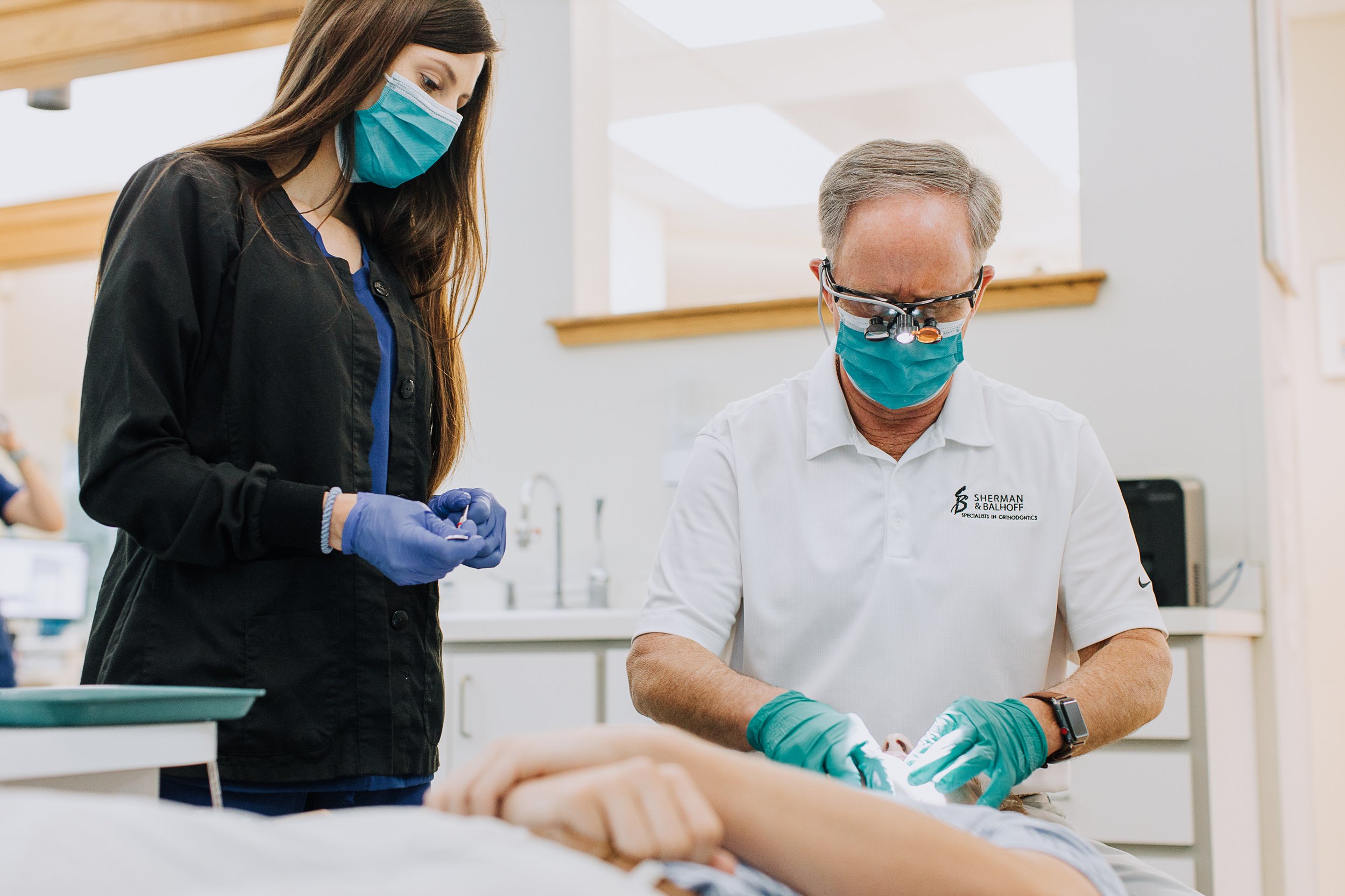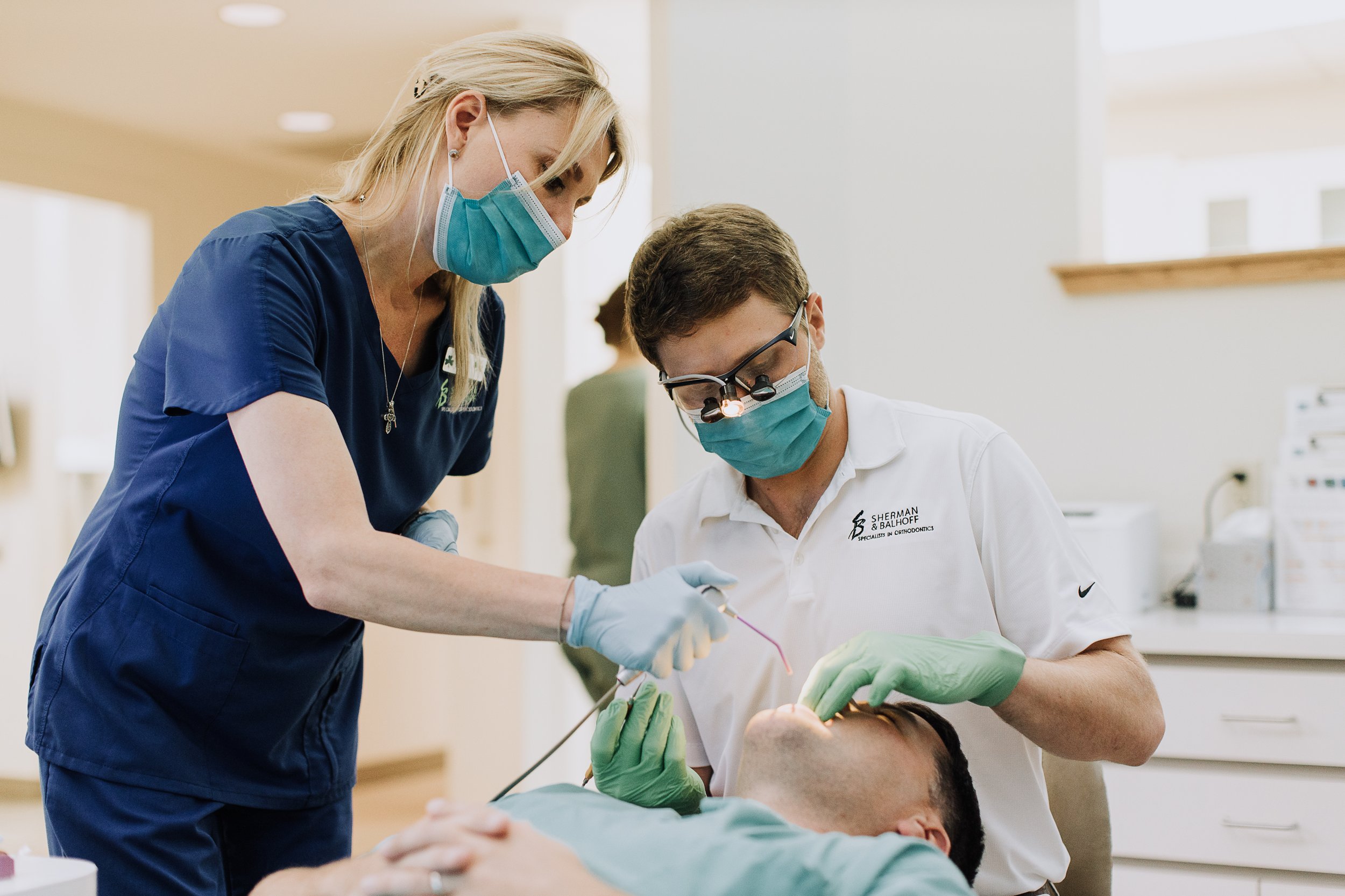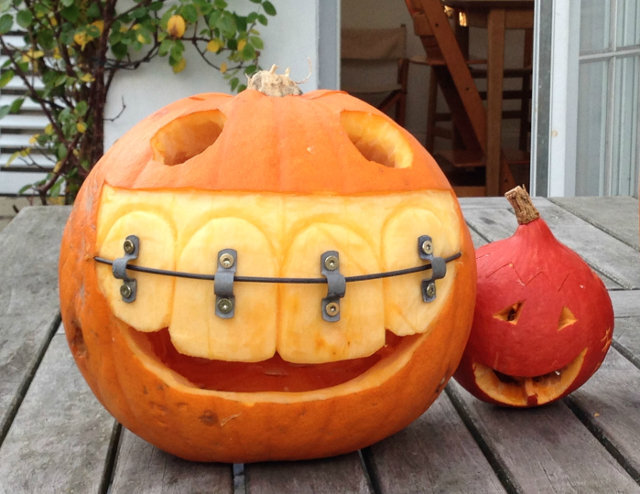First and foremost, we are open because we feel it is safe for you to come in because of the many efforts we are taking to sanitize our practices. Here are a few important things your orthodontist wants you to know during this time:

1. Your oral health is representative of your overall health. Now isn’t a time to let it slide.
Orthodontists routinely utilize appliances such as springs, coils and memory wires that apply continuous forces to the teeth and jaws and for this reason it is critical to physically monitor and adjust the appliances.
Additionally, leaving misaligned teeth untreated may lead to other dental problems such as tooth decay, gum disease, abnormal wearing of tooth enamel and difficulty chewing.
2. We are taking more precautions than ever for the safety of patients and team members:

-
-
-
Wearing the proper PPE
-
Practicing physical distancing etiquette
-
Cleaning and disinfecting even more often than in the past
-
Asking screening and triage questions
-
Checking temperatures
-
-
3. Our patients’ health is our top priority. If we are open, it is because we feel it’s safe for you to come in.
-
Our mission is to keep everyone safe, patients and team members, while continuing to provide quality orthodontic care. If we are open, rest assured that any infection control precautions and changes are designed for your protection and that of our team members.
4. Dentists and orthodontic specialists have always been leaders in infection control and preventing the spread of diseases.
As oral health professionals, we are leaders in safely practicing with blood borne pathogens and respiratory pathogens. We are taking all the Centers for Disease Control (CDC) recommendations and implementing them in our offices.
5. As oral health professionals, we continue to stay on top of new safety protocols.
We continue to educate ourselves and staff on new safety protocols as well as update our infection control protocols to ensure they align with the CDC and any other applicable guidelines. After all, our number one priority is to deliver orthodontic care in a safe environment.
Chances are you’ve been learning about the benefits of good oral hygiene since you were first introduced to a toothbrush as a child. We all know brushing our teeth should be a part of our daily routine, but the benefits of good oral hygiene go far beyond fresh breath. Good oral hygiene is the number one way to prevent gum disease, a condition afflicting nearly half of American adults according to a study by the American Academy of Periodontology.
This statistic alone is alarming, but it gets worse as more and more studies are linking the inflammation of gum disease with other conditions such as diabetes, stroke, heart disease and cancer – all epidemics in our country.
We’d like to combat periodontal disease, as well as improve your overall health by explaining the benefits of good oral hygiene. It’s up to you to make the change, and we are here to help!
The Benefits of Good Oral Hygiene
-
Reduce the chance of tooth decay
-
Reduce tooth sensitivity
-
Reduce the likelihood of cavities, and the resulting fillings
-
Preventative care is always less expensive than emergency care
-
Keeping your teeth (rather than needing dentures or crowns) is more likely
-
Fresher breath
-
Reduced chance of root canals and oral surgery
-
Better gum health
-
Lowered risk of cancer
-
Lowered risk of stroke
-
Lowered risk of heart disease and heart attack
-
Healthier pregnancy and stronger fertility
-
Lower risk of Type 2 Diabetes
-
Lower risk of developing Alzheimer’s disease
Overall, good oral care results in a healthier mouth and a healthier body!
Recommendations for Good Oral Hygiene
The basis of good oral hygiene starts with good home care. The American Dental Association recommends:
-
Brushing teeth twice a day with fluoride toothpaste
-
Flossing at least once a day
-
Drinking water between meals
-
And of course, seeing your dentist on a regular basis
Remember orthodontic treatment is suitable for patients of all ages. Treatment can be accomplished with minimal discomfort and in a reasonable time period that can have lasting results. Now that you know the truth about braces, feel comfortable to go and enjoy life.
Ceramic braces and metal braces use a similar design to achieve straight teeth and a healthy smile, but the major difference is the material the brackets are made from. Ceramic braces are often preferred over metal braces by older teens and working professional adults who want to straighten their teeth without the appearance of metal braces





